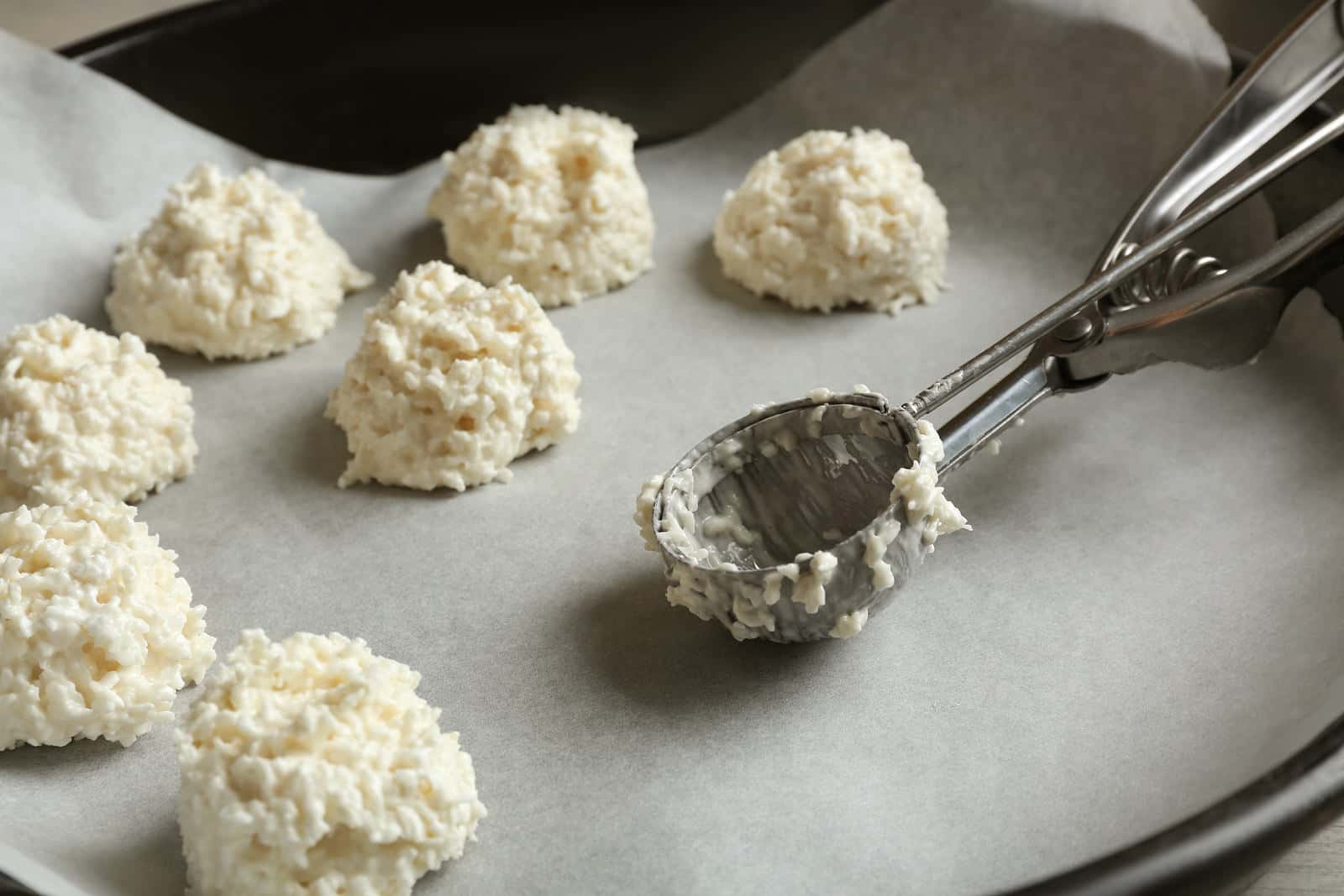
Crohn’s disease is a serious condition in which the lining of the digestive tract is inflamed. The consequences can be severe diarrhea, terrible bellyaches, weight loss or even malnutrition and fatigue. Inflammation may affect different parts of the digestive tract. Doctors often treat this inflammatory bowel disease with strong steroids or other medicines that may have undesirable consequences over the long term. We have heard from many readers who have found that adding coconut macaroon cookies to their treatment regimen can reduce the diarrhea that is sometimes an overwhelming symptom. Have you heard about coconut cookies for Crohn’s?
Coconut Macaroon Cookies for Crohn’s Disease:
Q. My husband has had gastroduodenal Crohn’s disease since 1988. Over the years it has spread to the intestines as well.
I am writing because my son sent me an article about coconut macaroons combating diarrhea. In the article, a lady asked you for a recipe for these cookies to stop diarrhea. My husband gets diarrhea frequently and I would love to know more about what was in the article. Anything you can send me would be greatly appreciated.
A. We first heard about coconut macaroon cookies from Donald Agar over 20 years ago. By accident, he discovered that eating two Archway Coconut Macaroon cookies a day helped control the diarrhea associated with Crohn’s disease. Since then we have heard from many people who have reported improvement with this remedy.
You can make your own coconut macaroon cookies. The ingredients are shredded coconut, sugar, salt, almond extract and egg whites. We have more details in our 174-page book, Recipes & Remedies from The People’s Pharmacy. One reader, worried about the sugar in these cookies, offered a link to this Paleo-friendly version.
Why Would Coconut Macaroons Benefit People With Crohn’s Disease?
Coconut is a high-fat food, but its fats are special. Coconut is particularly rich in medium chain triglycerides (MCT). Scientists have studied mice bred to develop intestinal inflammation. When the mice eat a diet high in MCT fat, they are less susceptible to colitis and inflammation (Journal of Nutrition, March 2009). We have not seen any clinical trials of coconut cookies for Crohn’s disease. However, other researchers have suggested that the coconut may have an important influence on microbes in the digestive tract. These in turn may influence the development of inflammation (Gastroenterology Clinics of North America, Dec. 2017).
Specific Carbohydrate Diet for Crohn’s Disease:
Another reader offered a similar experience, but with an interesting twist:
Q. My husband has had Crohn’s disease since he was 17, and he’s now 48. Fourteen years ago, just before our first child was born, he was in the hospital with a bad flare and was very close to surgery.
As he was recovering, the doctors wanted to put him on lifetime steroid meds. He didn’t want to go that route and did some research. He discovered the Specific Carbohydrate Diet (SCD), which would change his life forever.
His gas production significantly decreased within a day or two on the diet. He’s been med free and has had no flares ever since (14 years!). The diet is very demanding. You essentially cut out all grains, even foods like soy and rice, and all forms of sugar except honey. I use a lot of almond flour in cooking. And yes, he eats a lot of coconut through macaroons and other baked goods I make. For my husband, the diet is not a cure for Crohn’s, but it keeps the disease in check.
A. Thank you for sharing this amazing story. An article in the Journal of Pediatric Gastroenterology and Nutrition (Jan. 2014) offers a case series in which the SCD approach improved symptoms and lab results. People with inflammatory bowel disease have tried a variety of exclusion diets, including SCD, with some success (Gastroenterology Clinics of North America, Dec. 2017).
Citations
- Mañé J et al, "Partial replacement of dietary (n-6) fatty acids with medium-chain triglycerides decreases the incidence of spontaneous colitis in interleukin-10-deficient mice." Journal of Nutrition, March 2009. DOI: 10.3945/jn.108.101170
- Basson AR et al, "Complementary and alternative medicine strategies for therapeutic gut microbiota modulation in inflammatory bowel disease and their next-generation approaches." Gastroenterology Clinics of North America, Dec. 2017. DOI: 10.1016/j.gtc.2017.08.002
- Suskind DL et al, "Nutritional therapy in pediatric Crohn disease: the specific carbohydrate diet." Journal of Pediatric Gastroenterology and Nutrition, Jan. 2014. DOI: 10.1097/MPG.0000000000000103
- Kakodkar S & Mutlu EA, "Diet as a therapeutic option for adult inflammatory bowel disease." Gastroenterology Clinics of North America, Dec. 2017. DOI: 10.1016/j.gtc.2017.08.016

